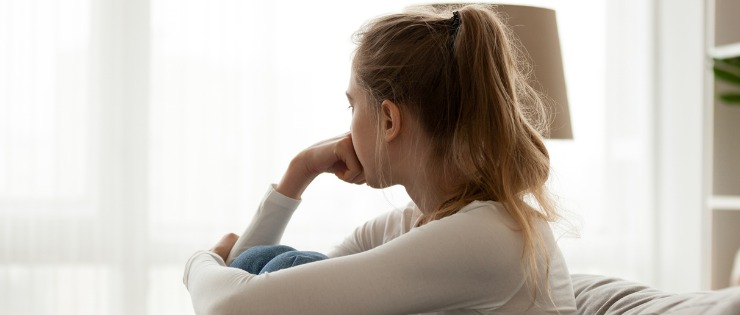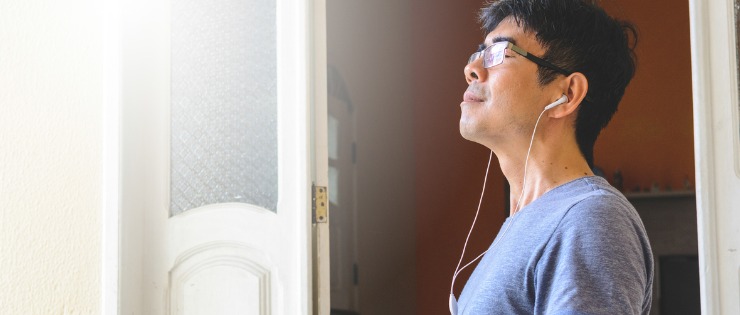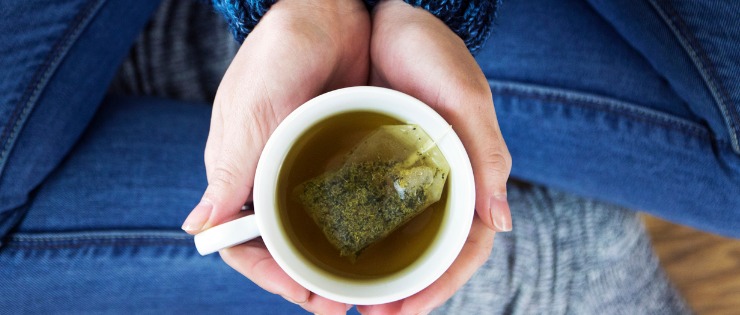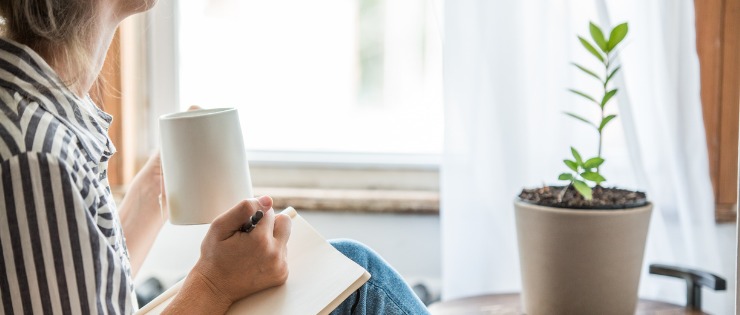
When anxiety strikes you need a strategy you can use on-the -spot to help you recover. The strategy you use to overcome the anxiety will depend on the situation and the symptoms you’re suffering from.
Anxiety attacks or panic attacks are sudden episodes of intense fear that triggers severe physical reactions when there is no real danger or apparent cause. An attack can be frightening and decrease your quality of life.
Anxiety Triggers
There are many different anxiety triggers. Knowing what your triggers are is the first step in being able to beat it. The next step is developing coping strategies for when anxiety hits.
Knowing the Signs of Anxiety
There are many signs and symptoms of anxiety. You may experience them in the same order or they may change with each episode. Being aware of the signs may help with introducing your strategy earlier so you have the greatest chance of gaining control over the attack. Some of the common signs and symptoms of anxiety include:
Racing heart
Feeling tired or exhausted
Trembling
Feelings of dread or panic
Changes in your stomach or bowel
Poor concentration
Hyperventilation

On-the-Spot Strategies for Beating Anxiety
Panic attacks can strike at any time and place. For this reason you need quick strategies to help reduce your symptoms and gain control over your anxious feelings.
Try one of the following 10 strategies to stop an anxiety attack.
#1 Deep Breathing
Two common physical symptoms of anxiety is a fast heart rate and quick breaths which can lead to hyperventilation. Try to slow down your breathing to reduce your symptoms.
Concentrate on breathing in through your nose to fill your lower lungs then upper lungs before holding your breath for a count of three. Exhale slowly and think about relaxing your muscles in your upper body as you do. Put all your effort and thoughts into breathing and move aside your worried thoughts. Continue deep breathing until you feel calm and your heartrate has slowed to a more normal level.

#2 Remove Yourself from The Stressful Situation
This one might not always be possible but in instances where you can, move away from the situation that’s causing you to feel anxious. It may be a conversation or a person that’s making you feel anxious so excuse yourself and leave the room. Once you have left you can then use other strategies like deep breathing or exercise to help overcome the physical symptoms you may be experiencing.
#3 Think About Something Different
If your anxiety is brought on by the thought of having to do something or go somewhere, switch your brain over to something else. Try not to dwell on the bad by having something feel-good to think about. It might be what you will do on your next holiday, plans you have for Saturday night, or how good you felt when you helped a friend.
Our mind is a powerful tool, it’s capable of thinking about the good as well as the bad. You might just need to train your brain to overcome your anxious thoughts and picture yourself in a happy place.
#4 Focus on an Object
If flipping your mind to something happy is difficult to do, try channelling your focus on a nearby object. Study the item and all of the individual components it’s made of. While your mind is occupied on the object, you will hopefully feel your anxiety symptoms begin to fade.
Some people benefit from using the same object to provide comfort whenever they feel their anxiety flare. Anything small that can be carried around can work such as a rock, bead, stress ball or pen. Engage your senses as you repetitively look at it and move it between your fingers so your mind’s focus is taken away from the anxious thoughts and transferred to the object.
#5 Eat or Drink Something
Giving your body something else to do helps reduce the symptoms. Try to have something on hand like a hard lolly, some nuts, a glass of water or a cup of green tea. Concentrate on the taste and smell as well as your mouth’s chewing or sipping action rather than what’s triggered your anxiety. Just be careful that you don’t turn to food whenever you feel stressed or anxious to ensure the habit doesn’t turn into stress eating.

Also, try to incorporate healthy foods in your diet that help with anxiety. Brazil nuts are high in selenium which reduces inflammation, and vitamin E which is an antioxidant. Potassium-rich foods such as pumpkin seeds and bananas can also help reduce stress and anxiety. Fatty fish with high levels of omega-3 and the bacteria in yoghurt promote healthy brain function and health.
#6 Inhale Lavender
The smell of lavender has been used for many years to relieve anxiety and promote calm and relaxation. If you have a lavender bush at home, you can keep some fresh flowers with you that you can smell and rub between your fingers. Alternatively, you can carry a small bottle of oil that you can dab on your wrists or hand.
Be aware if you’re taking benzodiazepine medication for your anxiety that combining it with lavender oil can make you drowsy.
#7 Talk it Through
Anxiety can make you feel isolated at times. If you have a trusted friend or colleague nearby, try talking to them about the situation that’s making you feel anxious. Sometimes another person can offer a solution that you hadn’t thought of or they can help improve the situation for you.

If you prefer not to talk to someone you know, make a call to a help line or read an online forum. Knowing that you aren’t the only one suffering from anxiety can help. Chances are people around you have had similar experiences, you just don’t know about it.
#8 Write it Down
Knowing your anxiety triggers can help your current situation and help you avoid future attacks. Take a few minutes to write down details on paper or your computer.
Start by describing the event that caused the anxiety and the concerns about what could happen. Read and think about what you have written and consider what you could do to change your circumstances next time. Consider if your worry is really a concern and how likely the worst possible scenario would occur.

#9 Head Outside For a Hit of Nature
Nature can do wonders for an instant pick-me-up. Best of all, you don’t need to travel to a flowing creek or hectares of bushland to feel the effects. You can go into a small garden to take in the natural surroundings by looking closely at the plants, feel the grass on your feet and listen for the sounds of the birds. Use all your senses to take in the natural surroundings and try to forget about your worries, even for a short time.
Research has found that being exposed to nature can have a positive impact by reducing blood pressure, heart rate, tension in our muscles and the production of stress hormones. People report feeling more calm and balanced after being in nature.
#10 Exercise
One of the greatest stress and anxiety relievers is exercise. Research has shown that regular exercise can alleviate chronic anxiety and reduce the frequency of panic attacks. The exercise doesn’t need to be strenuous; just going for a short walk can be all it takes to clear your head.
Improved blood circulation and the production of feel-good endorphins can quickly ease your anxiety symptoms. Try to take a few breaks throughout your work day to go for a walk and reduce the chance of feeling anxious. Exercise can also help with falling asleep at night if you’re having sleep difficulties.

Is it Anxiety or an Anxiety Disorder?
There are varying degrees of anxiety. Some suffer mild anxiety, with a few attacks in their life which resolves itself. While others have recurrent attacks and may feel like they are always waiting for the next attack to occur. This more severe form is known as an anxiety disorder.
The causes of anxiety attacks and disorders aren’t known, but it’s thought they are caused by significant stress, genetics, a sensitive temperament or changes to brain function. There are several different anxiety disorders.
Obsessive Compulsive Disorder (OCD)
OCD is obsessive thoughts or actions that are impossible to stop. The obsession can be a recurring thought or concern such as checking the door is locked. Some suffer from a compulsion they can’t stop such as hand washing.
Phobias and Fears
Phobias are heightened fears of an object or activity when there is little or no danger. A sufferer may go to extreme lengths to avoid the object or activity. Common phobias are snakes and a common irrational fear is flying.
Generalised Anxiety Disorder (GAD)
A person with generalised anxiety disorder is a chronic worrier who feels anxious most of the time, whether they know the reason or not. It’s common to suffer from physical ailments such as stomach pains, insomnia, fatigue and restlessness.
Social Anxiety Disorder
For some people the thought of being in a social situation strikes fear in them. They worry about what others think of them and avoid social situations. Stage fright is a common form of social anxiety.
Post-Traumatic Stress Disorder (PTSD)
PTSD can occur after a life-threatening situation or traumatic event. It can involve flashbacks of the event, withdrawing from family and friends and avoiding situations that may remind you of the traumatic event. War veterans often suffer PTSD after returning home from conflict.
Separation Anxiety Disorder
Separation anxiety occurs when a child struggles being away from their mum or dad. They don’t want to attend school or other activities where they won’t be with a parent.
Seeking Further Help
These 10 self-help strategies can be useful for some people. But if your anxiety is having a detrimental impact on your day to day life, speak to your GP. If left untreated anxiety can become chronic and difficult to manage. Do what you can to reduce your anxiety. The threat of an attack occurring can be enough to trigger anxiety and become a vicious circle.
The Anxiety Recovery Centre Victoria has a list of resources for each state and territory in Australia.